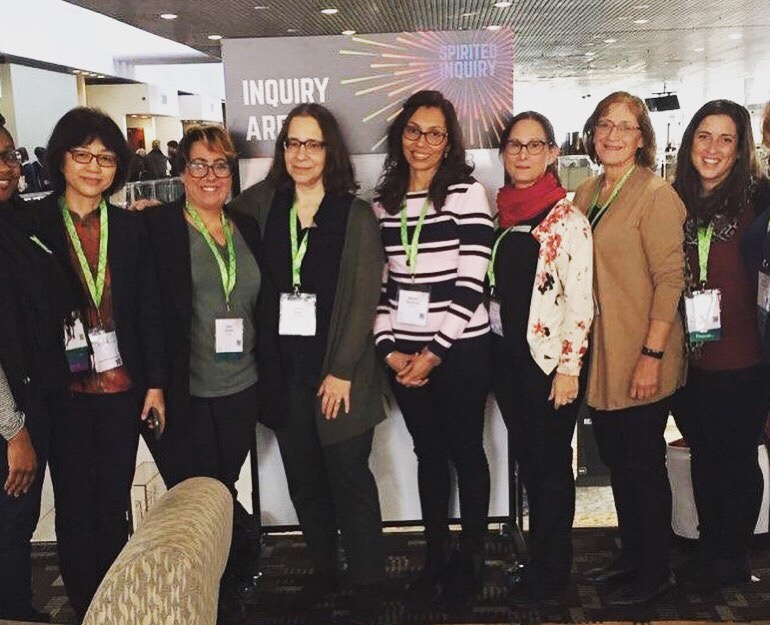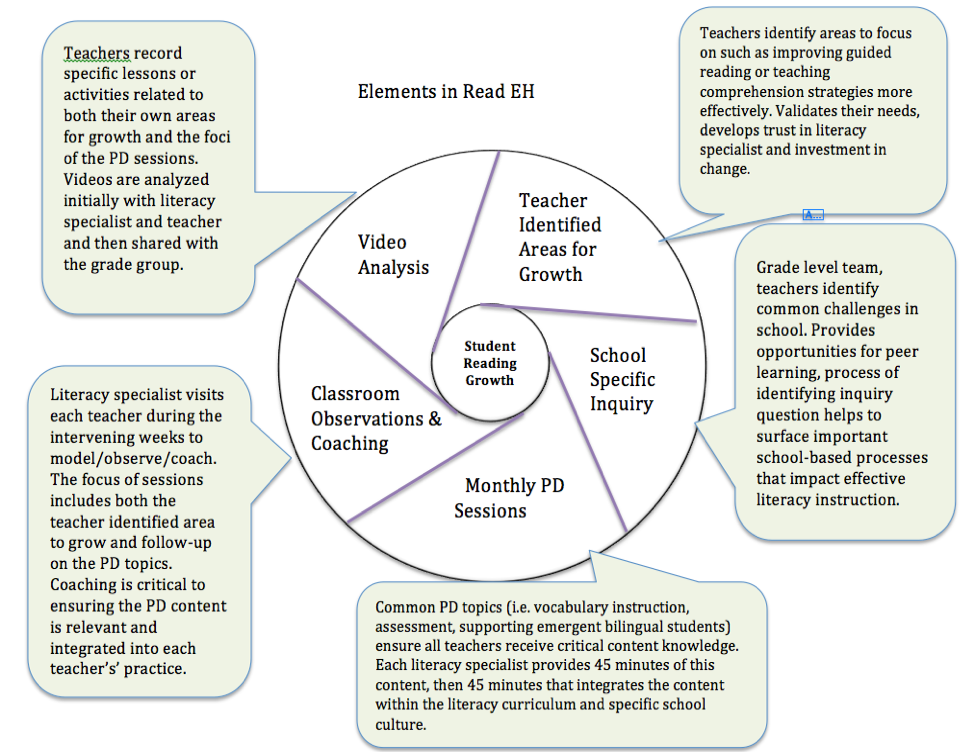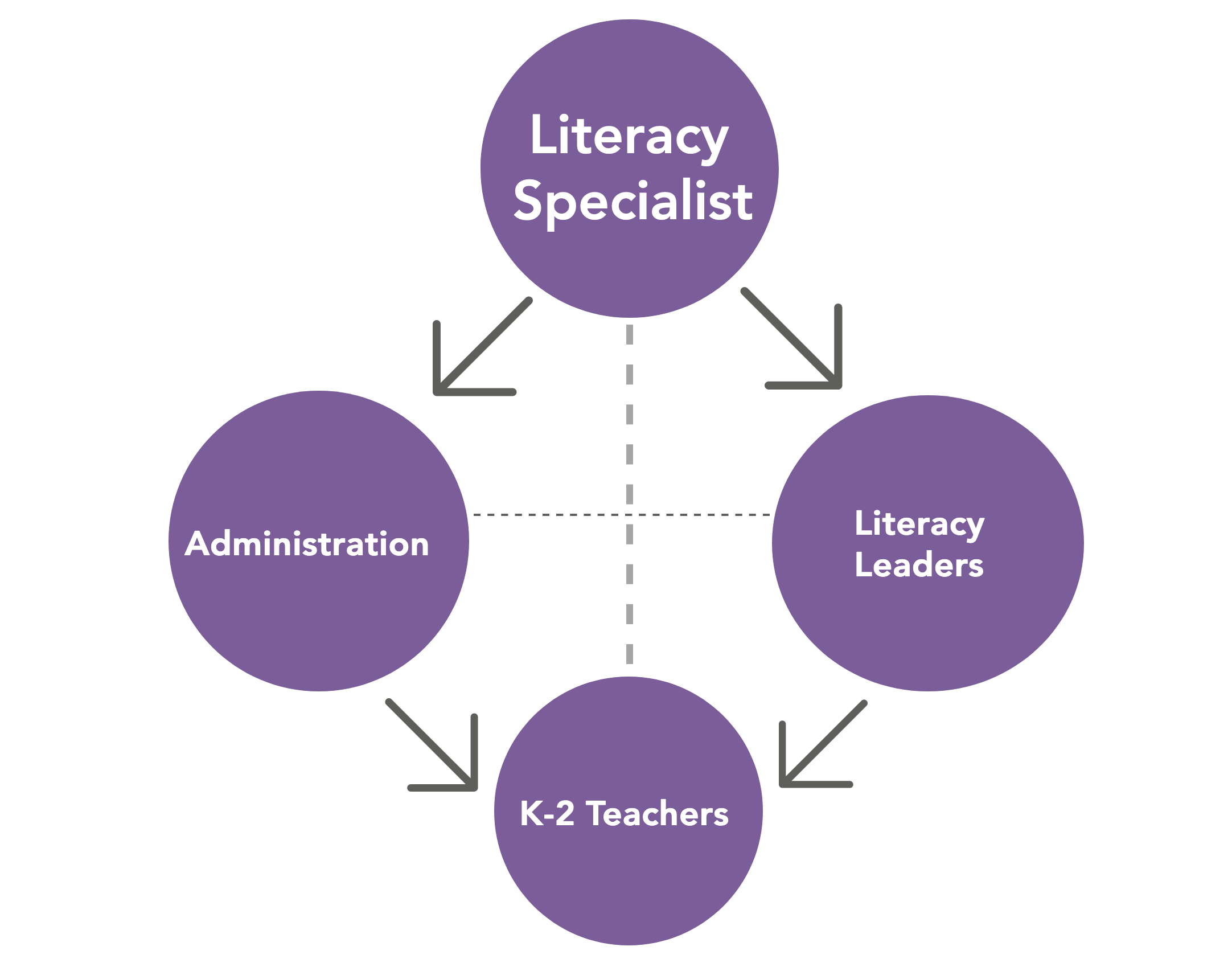Who We Are and What We Do

We are a group of teacher educators from Hunter College working alongside teachers and adminstrators to enhance literacy instruction and outcomes in New York City’s Community School Distrct 4 K-2 classrooms. Our work was funded by New York Community Trust, Astor Fund.
The driving focus of READ East Harlem/Hunter College was to improve the literacy abilities of second grade students in East Harlem. To do this, we worked alongside K-2 teachers to engage their diverse students in research‐supported critical reading comprehension instruction and practice. We supported teachers in grounding their work in deepened understanding rather than becoming an “add on” in their workload.
Core Beliefs
- We believe that sustainable change can only happen when we develop deep trusting relationships.
- We believe in Shared expertise and know it’s important for us to explicitly acknowledge that we are not always the leader or the most informed.
- We believe we must be flexible and remain open to opportunities each school’s unique context presents. This enabled us to adapt our project and be responsive to the needs and strengths of the setting.

READ East Harlem Elements
Our ultimate goal of course was to improve students’ literacy outcomes in an urban school district. We worked toward that goal in a few strategic ways. We:
- created and sustained relationships
- provided substantial explicit and actionable feedback
- provided sustainable and relevant professional learning opportunities
- cultivated collaborative and social learning experiences
- modeled reflective practice (planning, instruction, and assessment)
READ East Harlem Structure
Our approach was multi-faceted. We began by working with teachers at the individual grade levels through school specific professional development and related coaching. Then we expanded our work to the school as a whole by working with administrators and literacy leaders, and eventually extended the work throughout the D4 elementary school network. Through this multi-level implementation, REH promoted a sustainable professional development model within and across schools. At the end of the multi-year intervention, D4 emerged with a network of teachers and schools focused on literacy development, instruction, and achievement in the early grades.

To increase effectiveness in reading instruction in kindergarten through second grade in a high-needs district;
- We led Literacy-focused professional learning that was asset-based, relevant, and deepened teachers content knowledge. We conducted monthly K-2 professional learning sessions and individual, peer, and team coaching—meeting teachers where they were, building trust and sustaining relationships by providing actionable feedback and follow-up.
Our work was intended to be as minimally disruptive in that we worked with teachers. The PD and coaching included existing literacy curricula and featured iterative cycles in the same schools with the same participants, thus building human and institutional capacity. In this way teachers became advocates and literacy leaders in their schools.
We developed a teacher network that enabled teachers to share resources, develop district-wide PDs and facilitate learning across classrooms and buildings. We facilitated the development of the teachers’ content knowledge and leadership capacity of K-2 Literacy Leaders who then shared their growing expertise within their buildings and beyond—thus sustaining our work.
We organized for K-2 teachers across the district to share research-informed reading practices; where teachers from the district schools facilitated the learning of their peers, based on the work we’d been doing with them in their own classrooms.
To increase school leaders’ knowledge base and capacity to use effective reading curricula and support research informed instructional practices in their schools.
- We attended, facilitated, and sponsored district PDs with school principals.
- met with school leaders regularly (emailed and texted) to review and plan PD, add another perspective to data analysis, and discuss ongoing literacy instruction
- created a curriculum alignment tool to support principals’ understanding of literacy development, learning, and assessment
To have the impact we sought, it was imperative to have the support of the Superintendent so we met with her regularly and infused the district goals into our work with teachers.
